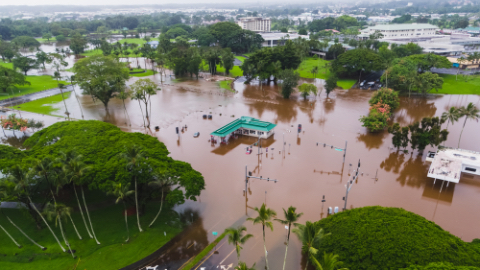
Researchers at the University of New South Wales in Sydney, Australia are proposing the use of floating microgrids made up of electric boat motors, renewable energy, and controls to help power islands after disasters.
“Powering small islands with reliable, affordable and green electricity is a big challenge due to their dispersed geographical location with a limited number of consumers and the heavy dependence on fossil fuels,” said the study, “Real-Time Load and Ancillary Support for a Remote Island Power System Using Electric Boats.”
On small islands, power quality, grid stability, reliability, and load shedding issues are the main challenges. Traditional battery storage solutions, such as large on-island batteries, are costly. The proposed system, which has been validated both in a real network as well as in a lab, has proven to be a solution to all of these challenges. It could increase the overall stability of the power source while being environmentally friendly and less costly.
Electric boats with renewable energy and controls can act as small power plants, and may participate in the bidirectional energy transactions of a virtual power plant in coastal areas, said Jayashri Ravishankar, an author of the report. The boat could employ a bidirectional energy transfer mechanism available in electric boats – which is called boat-to-grid or B2G. Bidirectional energy transfer means that users can charge the boats while they’re on the water, and energy can be taken from the boat batteries.
The authors propose a new real-time load support system (RTLS) using electric boats, community generators, and battery energy storage systems. The RTLS system would control the power flow to and from electric boats and batteries. The controller would be connected to the electric boats, the battery storage, whatever solar generator is being used and also the grid. Extra energy from the solar system would be routed to the battery, and a series of converters would enable energy transfer to and from the electric boats. Based on the grid load, power generation, and conditions of the battery and electric boat, the controller would coordinate the battery charging and discharging.
The report concluded that the system can “substantially reduce the grid load demand and maintain the power quality under various load/ source uncertainties and fault conditions.”
